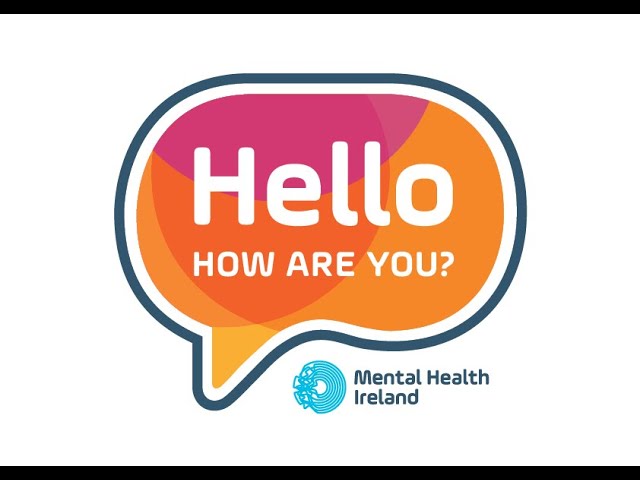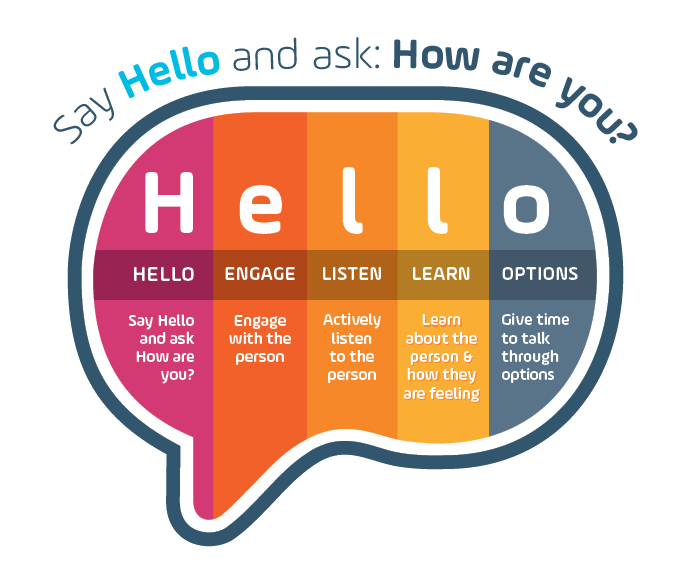
On the 30th of March, Mental Health Ireland will hold their second national ‘Hello How Are You?’ day.
This day aims to destigmatise attitudes around mental health by opening up conversations, similar USI’s own ‘Open Up’ campaign. By creating conversations, the campaign also aims to tackle loneliness, which can frequently play a part in both causing mental health issues, and preventing people from getting help for mental health issues. In the USI 2019 Mental Health Report, 34.9% of student respondents said they felt lonely often or all the time, and 20.9% said that they didn’t have someone to talk to about personal and emotional difficulties.

Research has shown that in the general population, 21% of people don’t feel confident in having conversations with friends about worries. Similarly in the USI 2019 Mental Health Report, 13% of student respondents said that they didn’t feel confident in supporting a friend going through a tough time, and 77% said they would like more information on how to look after a friend who was going through a tough time.
The USI’s Open Up campaign encourages students to talk about their mental health, both to professionals when they need help during tough times, but all to their friends and families too, in order to make it easier to have conversations when we are struggling. This approach is around reaching out for help, which is very important. That said, it can be hard to reach out, or to open up for the first time, and sometimes it can help if someone reaches in first. That’s where Mental Health Ireland’s campaign comes in. By using their HELLO framework, people can reach in to the people around them, check on their mental health, and feel confident in being there to support them should they disclose that they aren’t doing so well.

The HELLO Framework:
Step 1: Hello
- Say hello
- Ask the person if they would like a chat
- Remember, it’s ok if they say no , the person might not be ready to talk
- If they say yes, find a quiet spot to talk
- Bear in mind they might take up your invitation another time
Step 2: Engage
- Engage with the person
- Make some eye contact, or whatever feels comfortable (shoulder to shoulder might be best)
- Be as open as possible to the conversation
- Ask questions that are open and don’t require just yes/no answers
Step 3: Listen
- Use words and body language that lets the person know you are listening
- Reduce distraction as much as possible (turn off phones, tv, etc)
- Let the person speak and lead the conversation
- Remember, you are expected to have all the answers
- Try not to react too much to what is being said
Step 4: Learn
- Try to look at things from the other person’s perspective
- Ask what has worked in the past
- Trust that the person is the expert themselves an what works for them
Step 5: Options
- What next?
- Give the person time to talk through options
- Support the person to identify their next step
- Let them know that there are supports there available if needed (insert link to supports list)
- Check in to make sure the person is ok to end the conversation
- Make sure to look after yourself following the conversation.
For more information on supporting someone going through a tough time with their mental health, see here.
For organisations who support those supporting someone going through a tough time with their mental health, see the last section of this page.

Recent Comments